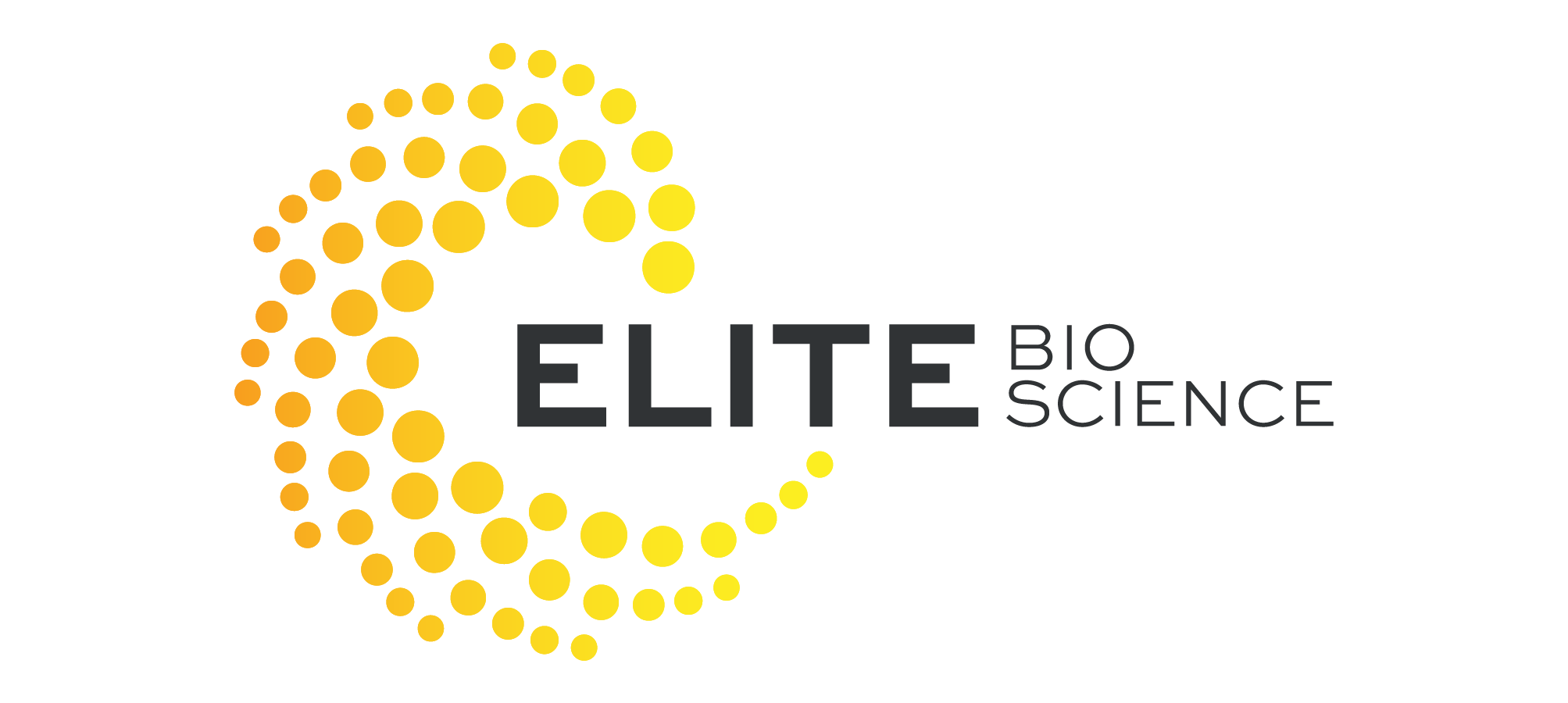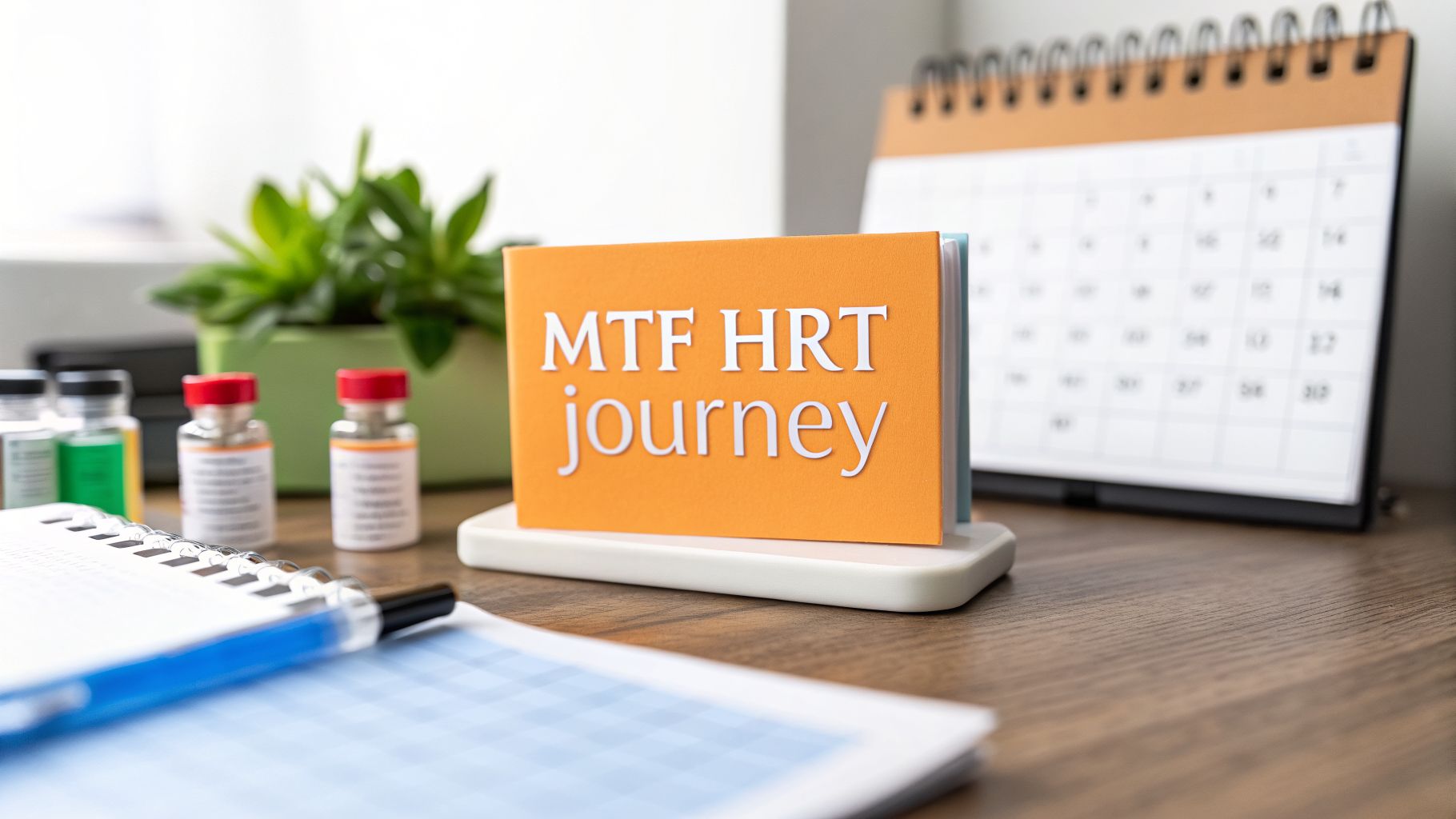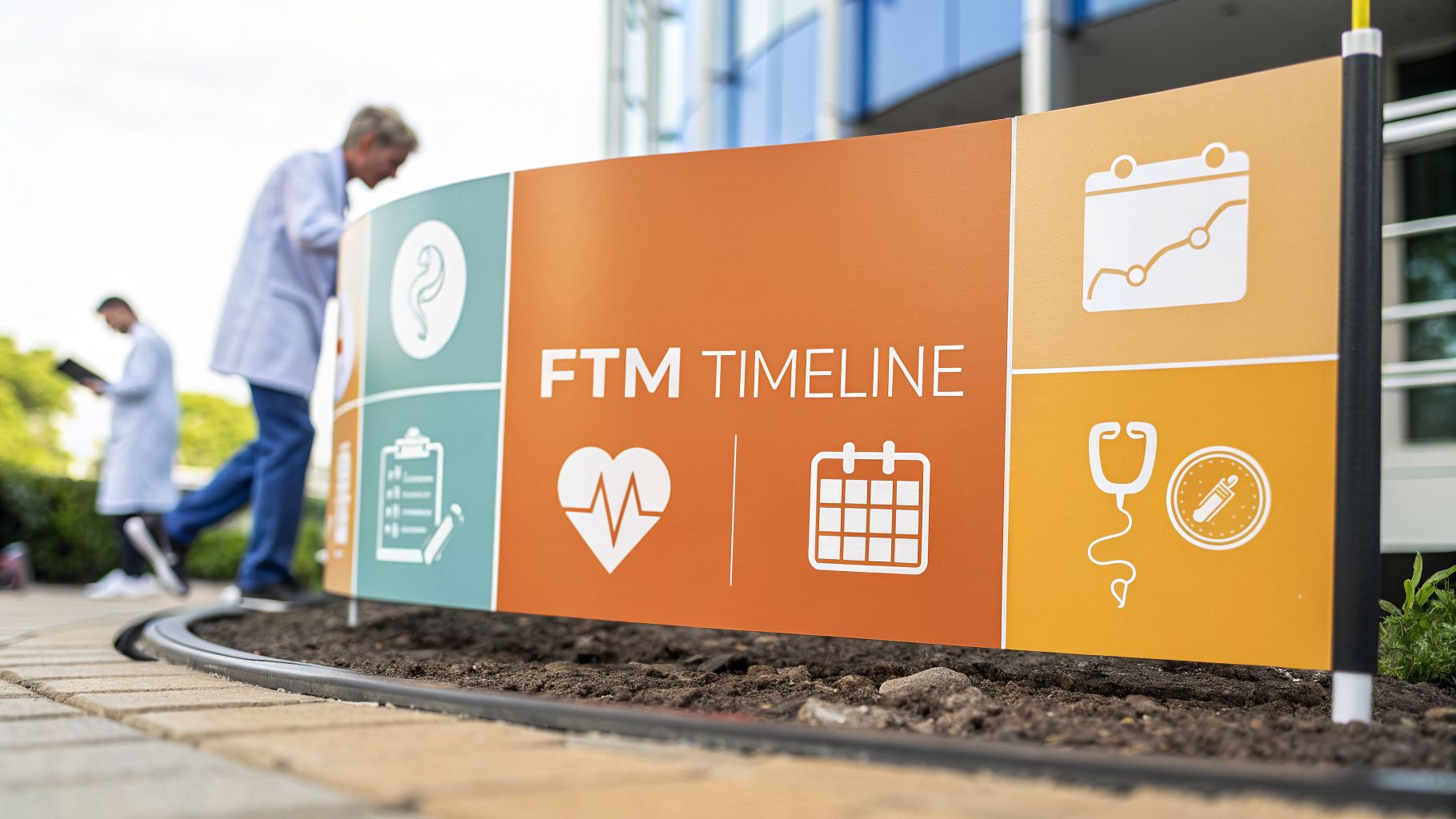Vitamins for Energy and Focus: Boost Mental Clarity Today

Feeling mentally foggy and physically drained is a frustratingly common experience. More often than not, it comes down to simple nutritional gaps that are crippling your body's ability to generate energy. Think of key players like the B-complex vitamins and magnesium as essential 'chargers' for your internal battery. Getting those levels right is often the most direct path to reclaiming your vitality and mental edge.
Why You Feel Drained and Unfocused
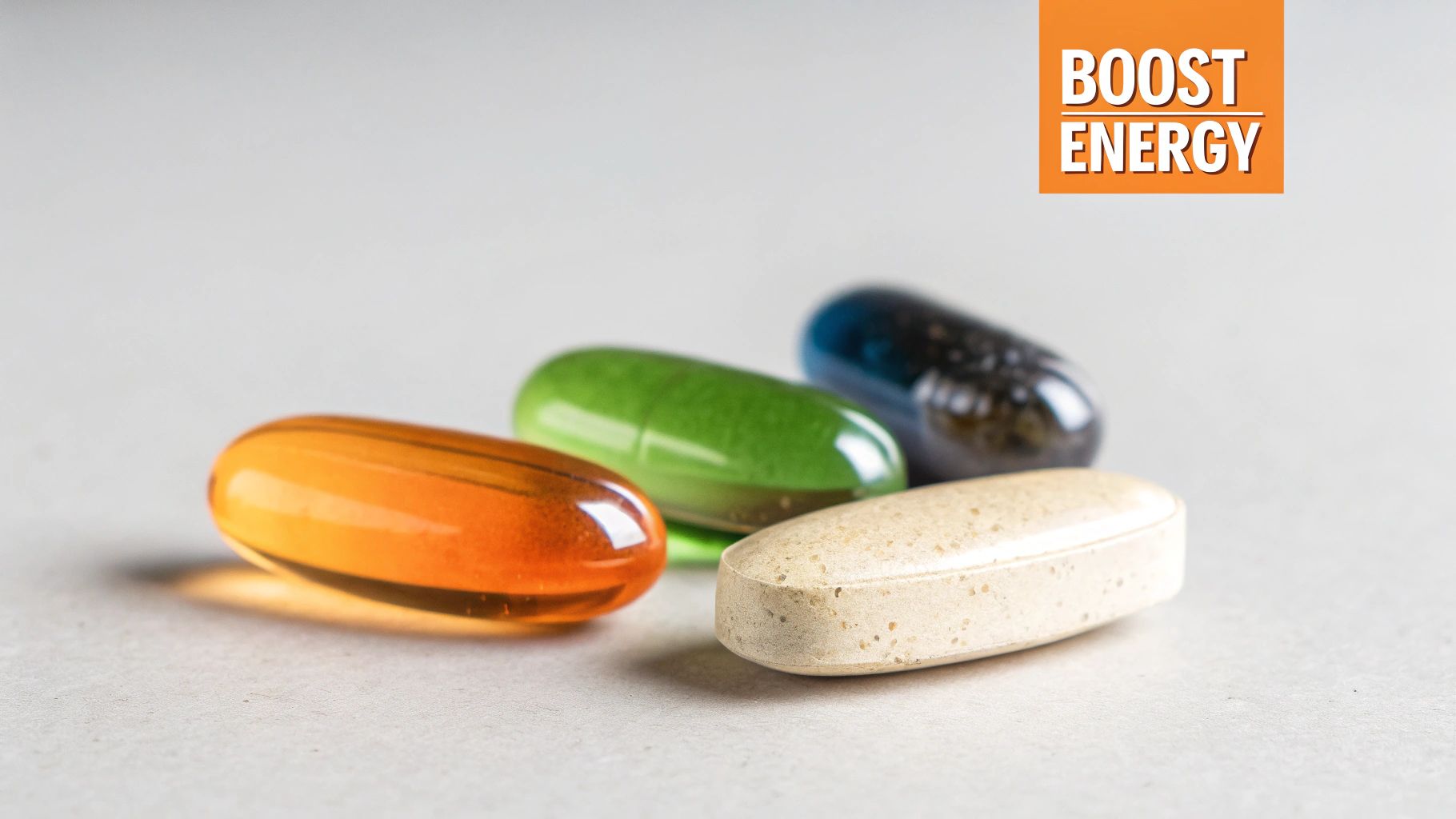
Picture your body’s energy reserve as a smartphone battery. From the moment you wake up, it's being run down by daily stress, a less-than-perfect diet, and inconsistent sleep. Each of these things places a heavy tax on your cellular energy production, leaving you running on fumes by midafternoon.
This isn't just a feeling; it’s a biological reality. Your body is an incredible machine designed to turn food into fuel, but that intricate process demands very specific raw materials. Without them, the whole system sputters and slows down, just like a factory assembly line missing its most critical parts.
The Connection Between Physical Energy and Mental Clarity
The internal machinery that powers your physical stamina is the exact same system that fuels your mental clarity. When your body is struggling to produce energy efficiently, your ability to concentrate and recall information is often the first thing to go. It's why that crushing physical fatigue so often comes with a thick layer of what causes brain fog.
This widespread need for a solution has fueled a massive interest in nutritional support. The global vitamin supplements market was pegged at USD 51.68 billion in 2024 and is projected to skyrocket to USD 99.78 billion by 2034. That explosive growth reflects a collective search for effective answers to a problem that’s holding millions of people back. You can dig into more market insights on Precedence Research.
Setting the Stage for a Solution
If we want to truly fix feelings of exhaustion and distraction, we have to start by understanding what our cells are starving for. A few key nutrients are simply non-negotiable for the energy-conversion process to run smoothly. These include:
- B Vitamins: These are the essential cofactors that help unlock the energy stored in the carbs, fats, and proteins you eat.
- Magnesium: This mineral is a powerhouse, involved in over 300 enzymatic reactions, including the ones that generate ATP—the body's main energy currency.
- Iron: Absolutely necessary for creating hemoglobin, which carries oxygen to your cells and, crucially, to your brain to fight off fatigue.
Think of these nutrients as the spark plugs, engine oil, and fuel injectors for your body. Without them in optimal amounts, your engine simply cannot perform at its best, leading to that all-too-familiar feeling of running on empty.
Understanding this foundational link between nutrition and performance is the first step. In the sections that follow, we'll break down exactly how specific vitamins for energy and focus can act as the 'chargers' you need to restore your battery and operate at full power.
The B-Vitamin Complex: Your Body’s Energy Production Crew
If you think of your body as a high-performance engine, then B vitamins are the skilled crew in the engine room, managing everything from fuel conversion to ignition. This group of eight essential nutrients isn't just a random collection; they work together like a well-oiled team. Each member has a specific, critical job in turning the food you eat into real, usable energy.
Without this crew working at full strength, your metabolic engine starts to sputter. Your body simply can’t efficiently convert carbs, fats, and proteins into adenosine triphosphate (ATP)—the high-octane fuel your cells run on. A shortage in even one B vitamin can leave you feeling stuck in low gear, battling that familiar brain fog and physical drag.
The good news is, once you understand who’s on the team and what they do, you have a clear roadmap to boosting your own vitality. Let's meet the key players.
Vitamin B12: The Metabolic Spark Plug
Vitamin B12, or cobalamin, is the rockstar of the B-vitamin family, and for good reason. Think of it as the literal spark plug for your metabolism. It’s absolutely essential for turning the food you eat into glucose, giving your cells the immediate energy they need to function.
But its job doesn't stop there. B12 is critical for two other processes that directly feed your energy and focus:
- Red Blood Cell Formation: B12 partners up with folate (B9) to build healthy red blood cells. These cells are like the oxygen delivery fleet for your entire body, and your brain is one of the most oxygen-demanding organs you have. A B12 shortage can lead to a type of anemia that starves your cells of oxygen, causing deep fatigue and mental slowness.
- Nervous System Health: This vitamin is also responsible for maintaining the myelin sheath, which is the protective insulation around your nerves. A healthy nervous system ensures messages fire cleanly and quickly between your brain and body, which is fundamental for sharp thinking.
A B12 deficiency can be sneaky, often showing up as just feeling tired. But its role is so central that even a small dip can make a huge difference in your ability to feel energized and think clearly.
Folate (B9): The Cellular Architect
Folate, also known as vitamin B9, is the master architect for your cells. Its main job is to build and repair DNA while also producing brand new cells—including those crucial red blood cells we just talked about. When your folate levels are low, your body’s ability to regenerate and maintain itself slows to a crawl.
This has an immediate impact on your energy. Without enough folate, your body can't produce healthy red blood cells, leading to another form of anemia. The result is the same: poor oxygen delivery, which brings on that debilitating fatigue and weakness. Folate is also a key player in producing neurotransmitters like serotonin and dopamine, which are essential for regulating your mood and concentration.
Other Key Players on the B-Team
While B12 and folate get most of the attention, the entire B-complex is a powerhouse of synergy. Every member contributes to the main goal of keeping you energized.
- Thiamine (B1): Helps convert carbohydrates into energy.
- Riboflavin (B2): Essential for breaking down fats and proteins.
- Niacin (B3): A key player in over 200 enzyme reactions, including energy metabolism.
- Pantothenic Acid (B5): Crucial for making coenzyme A, which helps metabolize fatty acids.
- Pyridoxine (B6): Involved in amino acid metabolism and creating neurotransmitters.
- Biotin (B7): Helps metabolize carbohydrates, fats, and proteins.
This teamwork is exactly why a balanced "B-complex" is often more effective than just taking a single B vitamin. A shortage in one can create a bottleneck that slows down the entire energy production line.
Food First: Building Your Foundation
Before jumping to supplements, building a strong nutritional foundation is always the best first step. Many everyday foods are packed with B vitamins, and making them a priority can make a real difference in how you feel.
Here’s a quick guide to some of the most important B vitamins for energy and where you can find them.
Key Vitamins for Energy and Their Roles
| Vitamin | Primary Energy Role | Top Food Sources |
|---|---|---|
| Vitamin B12 | Red blood cell production & energy metabolism | Meat, fish, poultry, eggs, dairy products |
| Folate (B9) | DNA synthesis & red blood cell formation | Leafy greens, beans, lentils, avocados |
| Vitamin B6 | Neurotransmitter production & protein metabolism | Chickpeas, tuna, salmon, potatoes, bananas |
| Niacin (B3) | Converts food into usable energy (ATP) | Chicken breast, tuna, turkey, peanuts, brown rice |
Focusing on a diet rich in these natural sources gives your body the best possible baseline for sustained energy and sharp focus.
Of course, the importance of vitamins is no secret. Supplementation has become a central part of modern health, with the global dietary supplements industry hitting a value of around USD 192.65 billion by 2024. Vitamin supplements alone make up 28.7% of that market. Adults, who represent 63.2% of consumers, often rely on these products to maintain their energy levels and boost cognitive performance. You can discover more insights about this growing market trend. Still, nothing beats a solid, food-first approach.
Nutrients That Sharpen Mental Clarity

While B vitamins are busy in the engine room keeping your body running, another crew of nutrients is hard at work upstairs in the command center—your brain. Physical stamina is only half the battle. True vitality kicks in when you match that energy with sharp, unwavering mental clarity.
Getting there requires a specific set of vitamins and minerals that act as the literal building blocks for your entire cognitive network.
Think of your brain as a bustling city. For messages to zip across town quickly and accurately, the infrastructure has to be flawless. Nutrients like Vitamin D, Magnesium, and Iron are the raw materials needed to maintain this complex system. They ensure your thoughts are clear, your focus is steady, and your mood is stable. Without them, the lines of communication start to break down, leading to that all-too-familiar feeling of brain fog.
Vitamin D: The Sunshine Vitamin for Your Brain
We usually hear about Vitamin D in the context of bone health, but its influence reaches deep into our cognitive and emotional well-being. It actually behaves more like a hormone than a vitamin, playing a huge part in regulating mood and supporting high-level executive functions like planning, problem-solving, and memory.
Low levels of Vitamin D are surprisingly common and have been linked to a depressed mood, which can be a massive drain on your mental energy. When your mood sinks, just mustering the motivation to concentrate on a tough task can feel like a monumental effort.
On top of that, Vitamin D helps protect brain neurons and reduce inflammation, creating a healthier environment for your cognitive processes to thrive. Getting your levels right is a foundational step toward building a resilient, focused mind.
Magnesium: The Brain’s Calming Agent
Ever feel like your brain is constantly buzzing with a low-grade static that makes it impossible to concentrate? You might be missing Magnesium. This essential mineral is nature's own calming agent, playing a vital role in regulating nerve signals and neurotransmitter activity.
Magnesium helps maintain healthy levels of GABA, a neurotransmitter that promotes relaxation and puts the brakes on over-excitement in the brain. It essentially turns down the volume on all that mental "noise," allowing you to find a state of calm, sustained focus. It’s involved in over 300 biochemical reactions, many of which tie directly back to energy production and brain function.
You can think of Magnesium as the gatekeeper for your brain's communication channels. It keeps your nervous system from getting overstimulated—a critical defense against the mental burnout that so often comes with high-stress days.
The tough part? Nearly half of the U.S. population doesn't get enough Magnesium from diet alone. This widespread shortfall shows just how easily a simple deficiency can undermine all your efforts to stay sharp and focused.
Iron: The Oxygen Delivery Specialist
Have you ever felt so mentally drained that even simple thoughts feel heavy? That sensation of a thick mental fog can often be traced back to a lack of oxygen reaching your brain cells. And Iron is the mineral responsible for making that critical delivery happen.
Iron is the core component of hemoglobin, the protein in your red blood cells that grabs onto oxygen and shuttles it from your lungs to every single cell in your body—including your brain. And your brain is incredibly oxygen-hungry, consuming about 20% of your body's total oxygen supply.
When iron levels dip, this whole delivery system falters. The resulting oxygen shortage leads directly to cognitive impairment, poor concentration, and that profound sense of mental fatigue. This condition, known as iron-deficiency anemia, is one of the most common nutritional deficiencies worldwide.
This growing awareness of how specific nutrients impact our cognitive function has fueled massive growth in the wellness market. The global over-the-counter vitamins and dietary supplements sector, which includes vitamins for energy and focus, was valued at USD 195.2 billion in 2025 and is projected to hit USD 346.3 billion by 2035. The trend is especially strong in North America, where people are actively looking for solutions to support their cognitive health. You can explore the full market research about these supplements.
By understanding how these key players—Vitamin D, Magnesium, and Iron—directly support your brain's infrastructure, you can start tackling the root causes of mental fatigue. Optimizing these levels isn't just about clearing away brain fog; it's about building the foundation for sharp, consistent cognitive performance, day in and day out.
Choosing Your Vitamin Delivery Method
So, you’ve pinpointed the key vitamins you need for energy and focus. The next logical question is, what’s the best way to get them into your system? You’ve got two main options: traditional oral supplements and modern injectable therapies. The whole debate between them boils down to one critical idea: bioavailability.
Think of it like this. Taking an oral supplement is like sending a package through the standard postal service. That package (the vitamin) has to survive a long journey through multiple sorting facilities—your entire digestive system—where it can get damaged, delayed, or even lost. Your stomach acid and digestive enzymes are powerful, and they can break down a big chunk of the vitamin before it ever reaches its destination.
Injectable vitamins, on the other hand, are like a direct courier service. The package is delivered straight into your hands, or in this case, your bloodstream. This route completely bypasses the digestive gauntlet, which means 100% of the nutrient is immediately available for your body to put to work.
We can break down the pros and cons of each method to make the choice clearer.
Comparing Oral and Injectable Vitamin Delivery
| Feature | Oral Supplements | Injectable Vitamins |
|---|---|---|
| Bioavailability | Highly variable (often low) | Nearly 100% |
| Absorption Speed | Slow (hours to days) | Immediate |
| Digestive Impact | Can cause stomach upset | Bypasses the digestive system |
| Convenience | Very high (daily pill) | Requires administration |
| Ideal For | General maintenance, minor gaps | Correcting deficiencies, rapid results |
As you can see, the right choice really depends on what you're trying to achieve. One isn't universally "better" than the other; they just serve different purposes.
The Great Bioavailability Debate
Let's be honest, popping a daily pill is incredibly convenient. Oral supplements are everywhere, they’re easy to take, and they’re generally affordable. For someone with a healthy gut who just needs to top off their nutrient levels, they can be a perfectly good way to maintain a solid baseline.
But here’s the catch: their effectiveness is completely at the mercy of your body's ability to absorb them. Things like your gut health, your age, certain medications you might be taking, and even the other foods you eat can slash the amount of the vitamin you actually use. It means a big part of what you paid for might just be passing right through you.
The real problem with oral supplements isn't the vitamin itself—it's the inefficient delivery route. You could be taking the perfect dose, but if your absorption is compromised, you'll never hit the optimal levels needed to feel a real difference in your energy and focus.
When Direct Delivery Makes a Difference
This is exactly where injectable therapies change the game. By delivering nutrients directly into the muscle or bloodstream, they solve the absorption problem, period. This approach is a game-changer for people with:
- Significant Deficiencies: When your B12 levels are critically low, injections can bring them back up to a healthy range far faster than any pill.
- Absorption Issues: Conditions like inflammatory bowel disease or a history of gastric surgery can seriously limit how well your gut absorbs nutrients from any source.
- A Need for Immediate Results: Because injectables are fully bioavailable from the get-go, they can produce a much more noticeable effect on energy and focus in a much shorter time.
This visual gives you a clear look at the recommended daily intake for some of the most important energy-boosting nutrients.
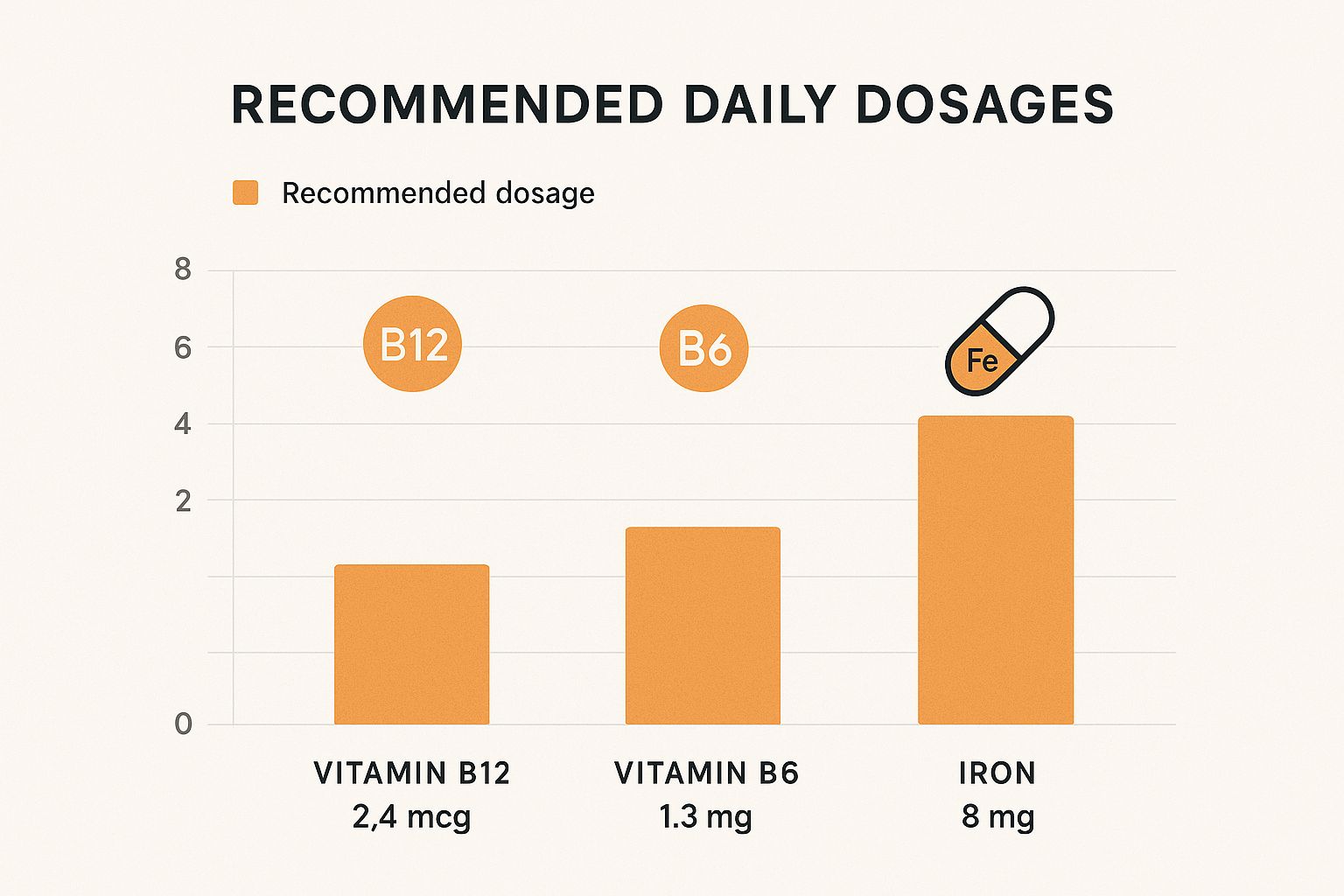
Hitting these daily targets is why getting maximum absorption is so critical. While oral options are fine for maintenance, many people discover that injectable vitamin shots for energy offer a more reliable and powerful way to fix deficiencies and truly boost their vitality. In the end, the right choice comes down to your unique body, your health status, and your wellness goals. A quick chat with a healthcare professional can help you figure out which delivery method will get you the results you’re looking for.
How Personalized Supplement Plans Work
Forget the one-size-fits-all approach of grabbing a bottle off the shelf. That’s just guesswork. A truly personalized supplement plan isn’t about chasing symptoms; it’s about using hard data to build a protocol that directly tackles your unique biological needs. This is where modern telehealth is completely changing the game.
We’re moving beyond generalized advice and starting with a clear, scientific understanding of you. The goal is to pinpoint the exact root causes of your fatigue and brain fog, creating a targeted plan of action instead of just throwing random vitamins at the problem and hoping for the best.
Step 1: Understanding Your Health and Goals
The journey kicks off with a comprehensive consultation. This isn't some quick online questionnaire. It’s a deep dive into your specific lifestyle, daily stressors, what you eat, and most importantly, what you’re trying to achieve. Are you looking to finally beat that afternoon energy slump, sharpen your focus for demanding projects, or boost your physical performance?
This initial conversation provides the crucial context for everything that follows. It allows a medical professional to understand the full picture, ensuring that when we get your lab results back, the final plan is perfectly aligned with what you actually want to accomplish.
A personalized plan starts with you, not a product. By mapping out your daily life and health objectives first, the subsequent lab results become much more meaningful, transforming raw data into a truly actionable roadmap for your health.
Step 2: Pinpointing Deficiencies with Lab Testing
Once we have your health baseline, the next step is to get the data. This is done through targeted lab testing, and it’s the most critical phase because it replaces guesswork with solid evidence. A simple blood test can reveal your precise levels of key vitamins for energy and focus, including:
- B-Vitamin Panel: This measures crucial players like B12 and Folate to see if your metabolic engine is getting the right kind of fuel.
- Vitamin D: We check for common deficiencies here, as low levels can have a huge impact on both your mood and cognitive function.
- Key Minerals: We’ll also assess levels of Magnesium and Iron, which are absolutely essential for nerve function and delivering oxygen to your brain.
This is where the science really comes alive. You can learn more about the specifics of this process by exploring our guide on testing for vitamin deficiency. The results from these tests give us an objective, undeniable look at what's happening inside your body, identifying the exact nutritional gaps that are holding you back.
Step 3: Creating Your Custom Protocol
With your health profile and lab results in hand, we craft your customized supplementation plan. This protocol is built just for you, optimizing not only the specific nutrients you need but also their precise dosages. We also determine the most effective delivery method—whether that’s oral or injectable—to ensure you get maximum absorption and benefit.
This data-driven method eliminates the risk of taking too little to see a difference or, just as bad, too much of a nutrient you don't even need. It’s a smarter, safer, and far more effective way to use vitamins to restore your energy and sharpen your mental clarity, all guided by expert medical oversight from the comfort of your home.
Finding Your Optimal Dose Safely

Starting any new supplement plan calls for a smart, safety-first mindset. Not all vitamins act the same way once they're in your system, and this is a crucial difference to understand before you start taking anything for energy and focus. The key distinction all comes down to how your body processes them.
Some nutrients, like the B-vitamin complex and Vitamin C, are water-soluble. Think of these like a glass of water that's a little too full; your body takes exactly what it needs, and any excess just overflows and gets flushed out through your urine. This built-in exit strategy makes them generally safer because they don't hang around and build up over time.
The Risk of Fat-Soluble Vitamins
On the other hand, some vitamins are fat-soluble. This group includes vitamins A, D, E, and K. Instead of being easily washed out, these get stored away in your body’s fat tissues and liver. Taking too much can lead to a slow, steady accumulation that can eventually reach toxic levels and cause serious health issues.
This is exactly why grabbing a bottle off the shelf and blindly self-dosing based on some generic advice you read online can be so risky. A dose that works wonders for one person could be totally ineffective—or even harmful—for you. Personalization isn't just about getting better results; it's the bedrock of a safe and effective strategy.
Your unique biology dictates what your body needs. A personalized plan, guided by professional medical oversight and confirmed with lab testing, is the only way to ensure your journey to better energy and focus is both successful and completely safe.
Listening to Your Body
While professional guidance is non-negotiable, you also have to be an active partner in your own health. Pay close attention to how you feel and learn to recognize the potential signs that a dose might be too high for you. These can include:
- Digestive trouble like nausea or stomach cramps.
- Unexplained headaches or feeling dizzy.
- Changes in your mood or feeling irritable for no reason.
These symptoms are your body's way of sending up a flare, signaling that something is out of balance.
Ultimately, the goal is to build a sustainable plan that fixes your specific deficiencies without creating new problems. By working with a medical professional, you can confidently dial in your optimal dosage, ensuring your path to better energy and sharper focus is built on a foundation of safety and precision.
Common Questions About Vitamins for Energy and Focus
When you're looking into vitamins for energy and focus, it’s natural to have some questions. Getting the real story behind how these supplements work helps you set the right expectations and make choices that are both safe and genuinely effective. Let's clear up a few things people often ask.
How Quickly Will I See Results?
Honestly, the timeline for feeling a difference is unique to you. It really depends on where you’re starting from—how deficient you might be, which vitamin you’re taking, and, most importantly, how you’re taking it.
If you’re taking pills, it often takes several weeks of consistent use for your body to build up enough of a reserve to produce a noticeable change. In contrast, injectable vitamins take a direct flight into your bloodstream, completely bypassing the digestive system. This can lead to much faster and more obvious effects, especially if you have a significant deficiency to correct.
Can I Get Everything from Diet Alone?
A balanced, whole-foods diet is always the best foundation for good health. But in the real world, it can be surprisingly tough to get optimal nutrient levels from food alone.
Think about it: modern farming can lead to soil nutrient depletion, food processing strips away vital compounds, and individual health issues like poor gut absorption can create significant nutritional gaps. Targeted supplementation helps bridge these gaps, ensuring your body gets the fuel it needs to function at its peak.
What Are the Side Effects?
Most side effects from energy-boosting vitamins are mild and nothing to worry about. For instance, B vitamins can cause harmless bright yellow urine—that’s just your body getting rid of the excess.
However, taking high doses of fat-soluble vitamins (like Vitamin D) can lead to them building up in your body, which can pose health risks over time. This is exactly why a one-size-fits-all approach is a bad idea. Talking to a healthcare professional to figure out the right dose for your specific needs is the only safe way to hit your goals without running into unintended problems.
Ready to move beyond guesswork and discover a plan built for your unique biology? Elite Bioscience offers data-driven, personalized vitamin protocols delivered directly to your door. Start your consultation today.
QUICK SEARCH
Make an account today to start your journey towards a better and healthier lifestyle.
